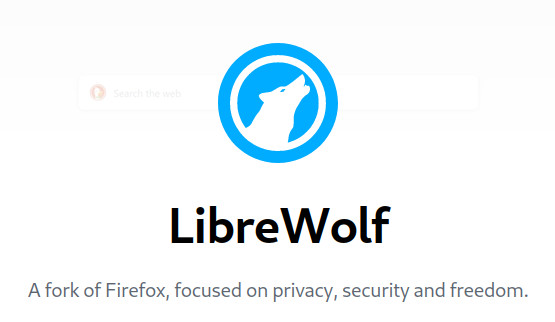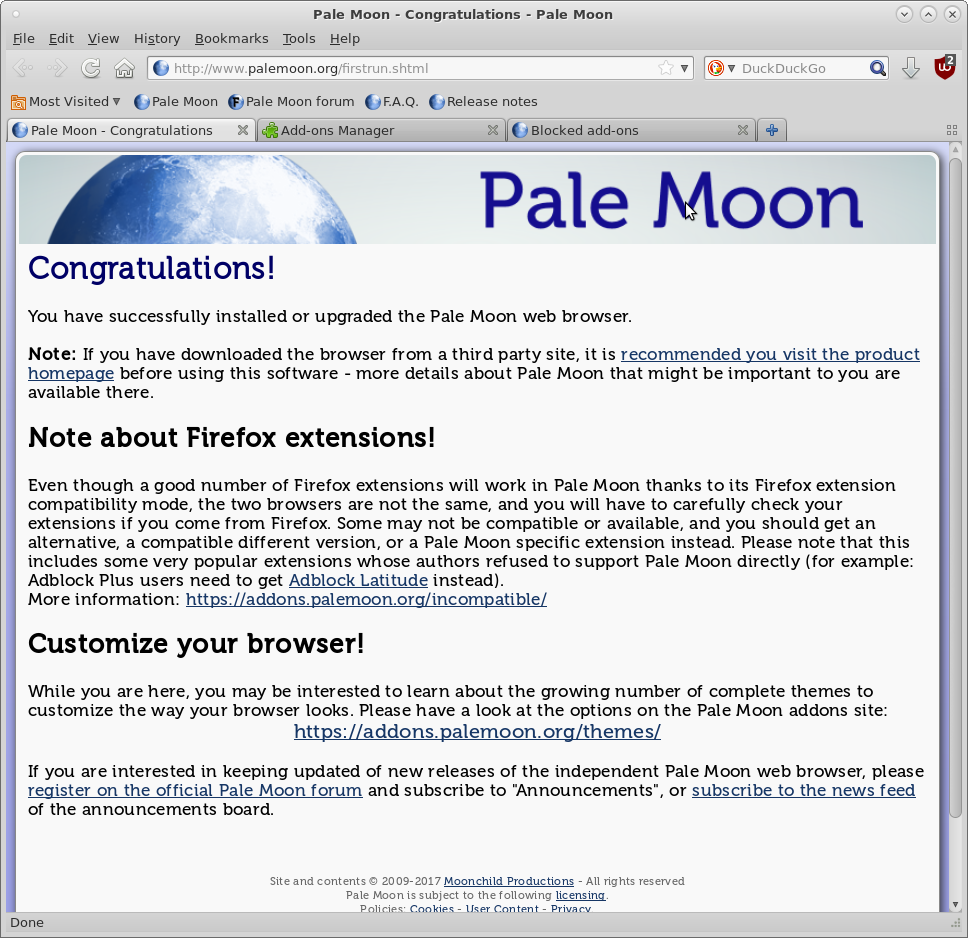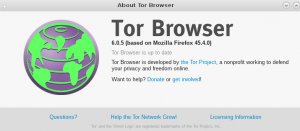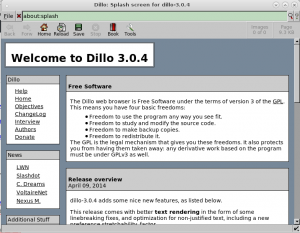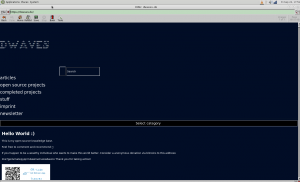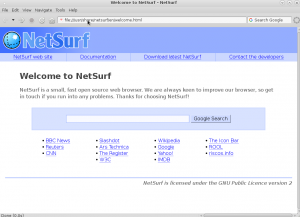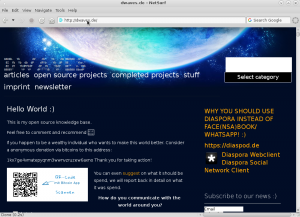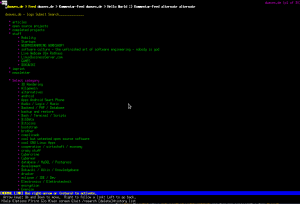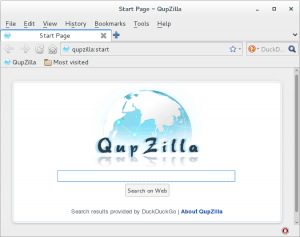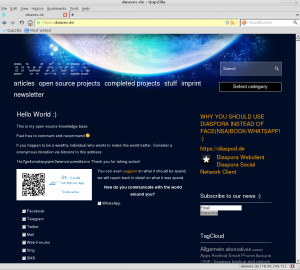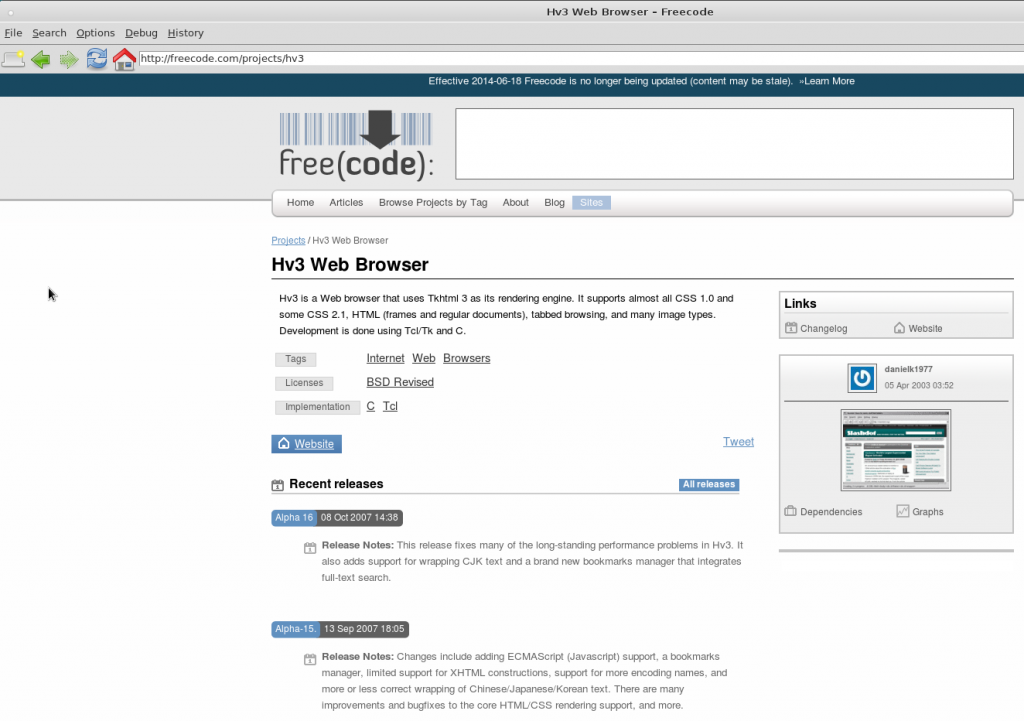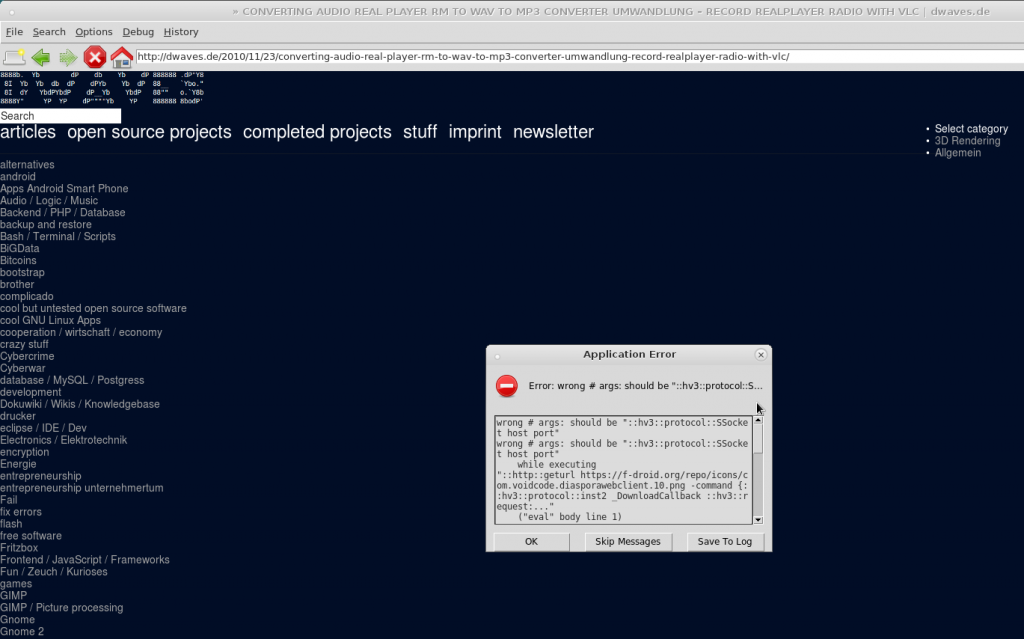update: 2018.04
PaleMoon archive Server HACKED!
“A malicious party gained access to the at the time Windows-based archive server” (src)
oh gosh! ? GO USE CENTOS DEBIAN AND LATEST KERNEL NOW!
“malware dropper tracked by ESET as Win32/ClipBanker.DY” (steals bitcoins)
https://www.securityweek.com/archive-server-pale-moon-open-source-browser-hacked
guys! You REALLY REALLY NEED TO KEEP YOUR UPDATE SERVERS SECURE! (in this case it was not the fault of the fox)
NO MATTER WHAT SOFTWARE!
HACKED UPDATE SERVERS ARE CATASTROPHIC!
(Mozilla code base) was just updated and released https://www.palemoon.org/releasenotes.shtml
- It is based on Firefox 27.9 (?) and pretty fast
- UserAgent from header Mozilla/5.0 (X11; Linux x86_64; rv:52.9) Gecko/20100101 Goanna/3.4 Firefox/52.9 PaleMoon/27.9.0
- youtube works
- uBlock works and comes with it’s own fork of Adbock Plus Latitude.
- “Adblock Plus is not compatible with Pale Moon, and will cause stability issues if installed.
Please use Adblock Latitude for a Pale Moon specific direct alternative.” (src)
- “Adblock Plus is not compatible with Pale Moon, and will cause stability issues if installed.
- 400 Points in HTML5 Test, but it will probably not support WebRTC video conferencing.
- works well with latest wordpress
- setup and download: https://linux.palemoon.org/download/mainline/ just unpack and run. Works well under CentOS7. (quick test)
Checkout: IceCat
Which browser to surf freely? # 2 Independent
this question immediately brings another question along:
What html rendering engine should i use? (can i trust)
A web browser engine (sometimes called layout engine or rendering engine) is a program that renders marked up content (such as HTML, XML, image files, etc.) and formatting information (such as CSS, XSL, etc.).
A layout engine is a typical component of web browsers, email clients, e-book readers, on-line help systems or other applications that require the displaying (and editing) of web content.
source: https://en.wikipedia.org/wiki/Web_browser_engine
Graphical
- Blink – for Google Chrome, Opera version 15+,[1] Sleipnir version 5+, and Maxthon version 4.2+
- Dillo – for Dillo
- EdgeHTML – for Microsoft Edge
- Gecko – for Firefox, Camino, K-Meleon, SeaMonkey, Netscape, and other Gecko-based browsers
- Goanna – for Pale Moon, FossaMail
- KHTML – for Konqueror
- MARTHA (layout engine) – for RealObjects
- NetFront – for Access NetFront
- NetSurf – for NetSurf – by netsurf-browser.org NetSurf won the award for “best non-commercial product” at The 2012/2013 RISC OS Awards.
You can surf netsurf’s source-code here: http://www.netsurf-browser.org/downloads/source/
- Prince
- Robin – for The Bat!
- Servo – developed by Mozilla and Samsung, written in Rust[2]
- Tkhtml – for hv3
- WebKit – for iOS (including both mobile Safari, WebViews within third-party apps, and web clips), Safari, Arora, Midori, OmniWeb (since version 5), Shiira, iCab since version 4, Web, SRWare Iron, Rekonq, Sleipnir, in Maxthon 3, and Google Chrome up to version 27
- Links2 launched with
-gflag. ChangeLog
Text-based
Historical
- Boxely – for AOL applications
- GtkHTML – for Novell Evolution and other GTK+ programs
- HTMLayout – (“not supported anymore, please use Sciter instead”[3]) embeddable HTML/CSS rendering engine – component for Windows and Windows Mobile operating systems
- iCab – for iCab 1-3
- Mariner – for the unreleased Netscape Communicator 5
- OffByOne (only has HTML 3.2 support)
- OmniWeb – for OmniWeb 1-4
- Presto – Opera 7-15, Macromedia Dreamweaver MX and MX 2004 (Mac), and Adobe Creative Suite 2
- Tasman – for Internet Explorer 5 for Mac, Microsoft Office 2004 for Mac, and Microsoft Office 2008 for Mac.
- Trident – for Internet Explorer since version 4.0 and embedded WebBrowser controls (such as Internet Explorer shells, Maxthon and some media players)
source: https://en.wikipedia.org/wiki/List_of_layout_engines
General information
Basic general information about the engines.
source: https://en.wikipedia.org/wiki/Comparison_of_web_browser_engines
Google translated transcript of: http://www.edeation.fr/surfer-librement-les-navigateurs-independants/
I spoke last week of derivatives free browsers to surf freely on the internet. Here today following withindependent browsers.
We start with QupZilla, light free Web browser (licensed under GPLv3) and cross-platform for the general public.
QupZilla offers extensive integration in standard desktop environments, without neglecting the customization options (many themes available).
In short, it was developed in the idea that “light” does not necessarily mean “lack of features“.
Screenshots
Install
apt-get install qupzilla; # install qupzilla
About QupZilla
QupZilla is a new and very fast QtWebEngine browser.
QtWebEngine integrates Chromium‘s fast moving web capabilities into Qt. So it’s the same codebase as Sware Iron and Google Chrome.
Don’t expect it to play Youtube. If you wanna watch Youtube you could download any video with jdownloader.org
It aims to be a lightweight web browser available through all major platforms.
This project has been originally started only for educational purposes. But from its start, QupZilla has grown into a feature-rich browser.
QupZilla has all standard functions you expect from a web browser. It includes bookmarks, history (both also in sidebar) and tabs. Above that, it has by default enabled blocking ads with a built-in AdBlock plugin.
History
The very first version of QupZilla has been released in December 2010 and it was written in Python with PyQt4 bindings. After a few versions, QupZilla has been completely rewritten in C++ with the Qt Framework.
The Windows version of QupZilla was compiled using MingW, but due to a huge problem with Flash, it is now compiled with Microsoft Visual C++ Compiler 2008. First public release was 1.0.0-b4.
Until version 2.0, QupZilla was using QtWebKit. QtWebKit is now deprecated and new versions are using QtWebEngine.
Who creates QupZilla?

David Rosca (nowrep)
Project owner and main developer, Student at FIT CTU
IRC: nowrep (irc.freenode.net)
E-mail: nowrep at gmail dot com
Jabber/XMPP: drosca@kdetalk.net
Apart from coding, others are contributing also by making translations or supporting QupZilla. Full list of contributors can be found here [at github].
You can also join IRC channel #qupzilla at irc.freenode.net to chat with people involved in QupZilla.
More on that: https://dwaves.de/2016/02/16/alternative-browser-for-linux-qupzilla/
More Private, Right?
Another common assumption is that Chromium is not under Google’s direct control and so offers better privacy from intrusions such as those recently revealed on the part of the National Security Agency.
“I would say that is still an open-ended question,” Paul B. Hill (http://systemexperts.com) said. “You are giving developers less information when you are using Chromium. If you go to the Chrome store in Chromium, it is hard to say what additional tracking you are providing.”
The bigger risk is if you use Chromium and plug it into Google services like Gmail. If, from within Chromium, you do the sign-in authentication and do your Web browsing, you are probably providing just as much tracking information to Google as if you were running Chrome itself, according to Hill.
“That is where the developers get the majority of information from users,” he explained. “It is not necessarily limited to any IP code in the Chrome browser itself.”
Chromium Alternatives
Users who really want to avoid as much tracking as possible would be better off using one of the Chromium derivatives or Linux distros that use tweaked versions of the Chromium browser that specifically address that ad-tracking feature and related information-gathering issues, suggested Hill.
Another advantage of this alternative-browser approach is additional security evaluations. For example, with some of these Chromium-based browsers, every time the Chromium community releases a new version, the smaller developer communities actually will evaluate the additional code.
That leads to decisions on whether or not to include the newer releases in these other third-party derivative browsers. This could have an impact on privacy and tracking that might not otherwise arise with either the Chromium core project or Google Chrome.
source: http://www.linuxinsider.com/story/79510.html
Dooble is itself a browser that focuses on privacy and user safety.
Another strong point is its universality, since Dooble currently available for FreeBSD, Linux, OS X and Windows.
Moreover, Dooble is in principle compatible with any operating system where Qt is available.
is a web browser and a free file manager free KDE desktop environment.
It can also display the contents of an FTP server, allowing to browse the local network and view files.
It uses KHTML rendering engine as the pages, which meets the HTML standards.
It supports JavaScript, Java applets, the CSS, SSL and other standards, as well as flash animations and video streaming.
For information this engine was taken over by Apple in its Safari browser.
Midori is a Japanese free browser that aims to be lightweight and fast.
It uses an interface based on the toolkit GTK + 2 and the rendering engine WebKitGTK + Web pages (a port of WebKit).
It has tabbed browsing (and easily Reorderable minimisables, with the option to display them vertically), a session management, management of bookmarks hierarchically by folders, the ability to search directly from the address bar (with a list of search engines), an auto-completion that shows real-time suggestions, search the page during data entry, a spell checker, a support scripts and styles, a support for Bookmarks scripted (bookmarklets), a cookie manager, a tool to selectively clean personal data (cookies …), in short, everything that makes a complete modern browser.
In the same vein, Kazehakase is another Japanese multilingual browser for Linux with GTK + 2 interface. It uses Gecko HTML rendering engine. However, the authors consider the possibility of using other renderers like GtkHTML, Dillo or w3m. Since version 0.4.5 release in early April 2007, Kazehakase may, on an experimental basis, rely on GTK + WebCore. And for information, it is the default browser shipped on the GNU / Linux Fluxbuntu.
Luakit is, as its name suggests, a browser based on Webkit lua. Configuration files allow to add features (for being a little unfamiliar with lua), allowing it to be fast and lightweight default. Its extreme modularity can also be fully manage the keyboard in vim mode.
K-Meleon is a free browser designed for various Microsoft Windows operating systems and using the Gecko engine to display pages. Its originality is that it is usable with only 32 MB of RAM while supporting the tabbed browsing. Light as a feather!
BlueLightCat is another fast and lightweight browser, but nevertheless complete with tabbed browsing, a private mode browsing, ad blocker, etc.
This is actually a fork of Arora, now developed into independence.
This list does not claim to be exhaustive but I think it gives a good state of market places at the end of 2014.
Note that I have not spoken minimalist browsers such as Lynx, Links, Links2, or Dillo w3m, which are not strictly speaking mainstream browsers, but browsers in ultra-light mode for text developer or obsolete equipment.
http://www.freesoftwaremagazine.com/articles/h3v_web_browser_it_dillo_killer
Lightweight Web Browsers: Do we need Flash and JavaScript?
Netsurf : Hv3 : Dillo : Links2
Nowadays the real lightweight web browsers are those without JavaScript and Flash support or with a very limited one.
Because a web browser even with the lightest interface becomes heavyweight working with the modern internet crammed with scripts and multimedia.
These browsers are not numerous and some of them are moving towards getting JavaScript support – i.e. towards dropping out of the “Lightweight web browsers” category.
Lightweight web browsers may be more advanced – with CSS support.
Or less – no CSS support or close to that.
source: http://www.kompx.com/en/lightweight-web-browsers-for-linux.htm
What is in the repository?
i searched the apt cache:
[cc lang=”bash” escaped=”true” width=”600″]
apt-cache search browser|grep web > ./temp/apt-cache-search_browser_web.txt; # manual sort:
==== webbrowsers:
qupzilla – lightweight web browser based on libqtwebkit
hv3 – Lightweight web browser
xombrero – minimalist web browser
surf – Simple web browser by suckless community
edbrowse – /bin/ed-alike webbrowser written in C
dillo – Small and fast web browser
conkeror – keyboard focused web browser with Emacs look and feel
arora – simple cross platform web browser
epiphany-browser – Intuitive GNOME web browser
hbro – minimal KISS-compliant web browser
jd – simple browser for “2ch-style” web forum sites
konqueror (default KDE browser) – advanced file manager, web browser and document viewer
konq-plugins – plugins for Konqueror, the KDE file/web/document browser
netsurf-common – small web browser with CSS support common files
netsurf-fb – small web browser with CSS support for framebuffers
netsurf-gtk – small web browser with CSS support for GTK
==== web editors:
bluefish – advanced Gtk+ text editor for web and software development
==== other web related stuff:
xul-ext-adblock-plus – advertisement blocking extension for web browsers
libjs-angularjs – lets you write client-side web applications as if you had a smarter browser
garmin-plugin – browser plugin for communication with the fitness websites
gurlchecker – graphical websites checker
libghc-webkit-dev – Binding to the Webkit library
libghc-webkit-doc – Binding to the Webkit library; documentation
libhttpunit-java – automated web site testing toolkit
httrack – Copy websites to your computer (Offline browser)
webhttrack – Copy websites to your computer, httrack with a Web interface
jscommunicator-web-phone – Basic SIP video-phone web page using WebRTC
jwchat – full featured, web-based Jabber chat client
libphp-snoopy – Snoopy is a PHP class that simulates a web browser
man2html – browse man pages in your web browser
ntop – display network usage in web browser
nut-cgi – network UPS tools – web interface
libjs-openlayers – JavaScript library for displaying map data in web browsers
php-horde-webmail – Horde Groupware Webmail Edition
webalizer – web server log analysis program
webdruid – Web server log file analysis tool
zeya – web music server
[/cc]
Links:
https://dwaves.de/2016/02/16/alternative-browser-for-linux-qupzilla/
http://www.linuxuser.co.uk/reviews/arora-web-browser-review
https://sourceforge.net/projects/zbrowser-linux/
https://sourceforge.net/projects/bluelightcat/
Other alternative fast / lightweight browsers: https://en.wikipedia.org/wiki/Comparison_of_lightweight_web_browsers
liked this article?
- only together we can create a truly free world
- plz support dwaves to keep it up & running!
- (yes the info on the internet is (mostly) free but beer is still not free (still have to work on that))
- really really hate advertisement
- contribute: whenever a solution was found, blog about it for others to find!
- talk about, recommend & link to this blog and articles
- thanks to all who contribute!



